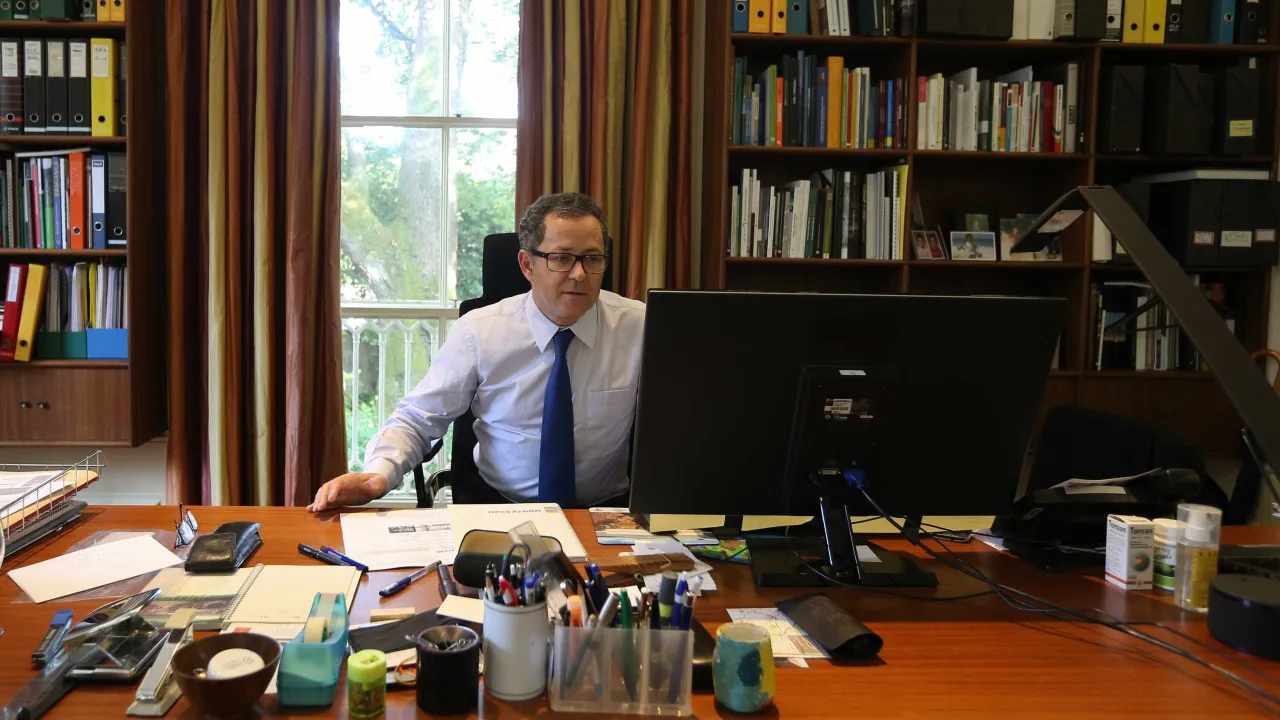
The government is set to meet this Thursday in a social consultation with social partners, with labor legislation expected to dominate the agenda.
The removal of restrictions on ‘outsourcing’ introduced by the Agenda for Decent Work is among the measures that the confederations wish to discuss, even though the Constitutional Court has recently confirmed the constitutionality of the provision.
“Although it falls within the broad spectrum of the Constitution, [the restriction] does not align with good practices of freedom of contracting,” argues Armindo Monteiro, president of the Business Confederation of Portugal (CIP), adding that he does not understand “how a free economy can prohibit free subcontracting.”
This perspective is shared by the president of the Confederation of Trade and Services of Portugal (CCP), who states, “regardless” of the Constitutional Court’s stance, “the provision makes no sense”.
“Outsourcing is, nowadays, an increasingly important form of relation for companies to provide flexibility in times of work overload,” says João Vieira Lopes.
According to this amendment to the Labor Code, which came into effect in 2023, “it is not permitted to use third-party services to satisfy needs that were met by a worker whose contract ended in the previous 12 months due to collective dismissal or redundancy.”
The elimination of these restrictions is one of the changes the government will present to social partners at Thursday’s meeting, alongside the creation of a new regime for purchasing vacation days at the cost of salary but without penalties on other benefits, and the definition of a minimum service percentage during strikes.
The Ministry of Labor, Solidarity and Social Security has not yet responded to questions regarding these proposals.
The proposals are likely to face opposition from trade unions. “The UGT fought hard for this provision and will continue to do so,” assures Sérgio Monte, UGT’s deputy secretary-general, emphasizing that this “is a measure to combat precarious employment.”
“It’s another tool they [the government] want to dismantle,” points out CGTP’s secretary-general, Tiago Oliveira, stressing the determination to maintain it.
Besides restrictions on outsourcing, there are other measures in the Agenda for Decent Work that the CIP seeks to repeal, including those related to “non-waivable credits” and “work time organization,” says Armindo Monteiro.
The CCP aims to bring issues related to telecommuting, flexible working hours, and fiscal measures to the forefront, so these can be thoroughly discussed by September, in light of the State Budget for 2026.
Trade unions, on the other hand, are focusing on salary valuation. “We have two million people who, even receiving social support, remain at the poverty threshold,” highlights the CGTP’s secretary-general, underscoring this as indicative of the hardships Portuguese people face and insisting on “the repeal of Labor Code provisions that allow for the expiration of collective bargaining.”
“We believe it’s time to strengthen the terms of the income agreement, and for us, clearly, salaries are the top priority,” states UGT’s deputy secretary-general, expressing willingness to discuss the national minimum wage trajectory covering the entire legislature, as the current agreement extends only to 2028. The government has set the goal for the minimum wage to reach 1,100 by 2029.
The government’s program suggests allowing “greater flexibility in vacation usage at the worker’s initiative,” with the possibility to purchase vacation days, subject to contractual limits between parties.
Trade unions are open to discussing the proposal but prefer reinstating the mechanism abolished during the ‘troika’ period, which allowed for vacation day increase based on seniority or attendance.
For UGT, the mechanism the government wants to implement to allow for vacation day purchases carries “risks” and creates “inequalities,” given that “a worker earning minimum wage will have fewer opportunities to purchase vacation days compared to a worker with a higher salary.”
Conversely, the CIP views the measure favorably but notes that “the term purchase of vacation is misleading because it does not actually involve buying vacation but allowing justified absence,” meaning “creating a way for the employee not to perform their duties without losing rights,” such as attendance or performance bonuses.
The CCP is “open to discuss” but believes this measure is already covered in the law through the “leave without pay format.”
The Confederation of Farmers of Portugal and the Confederation of Tourism of Portugal were contacted but did not provide comments.




